Search results
Projects
The Spatial Capability Cluster at RMIT (SCCAR)
Phase 2
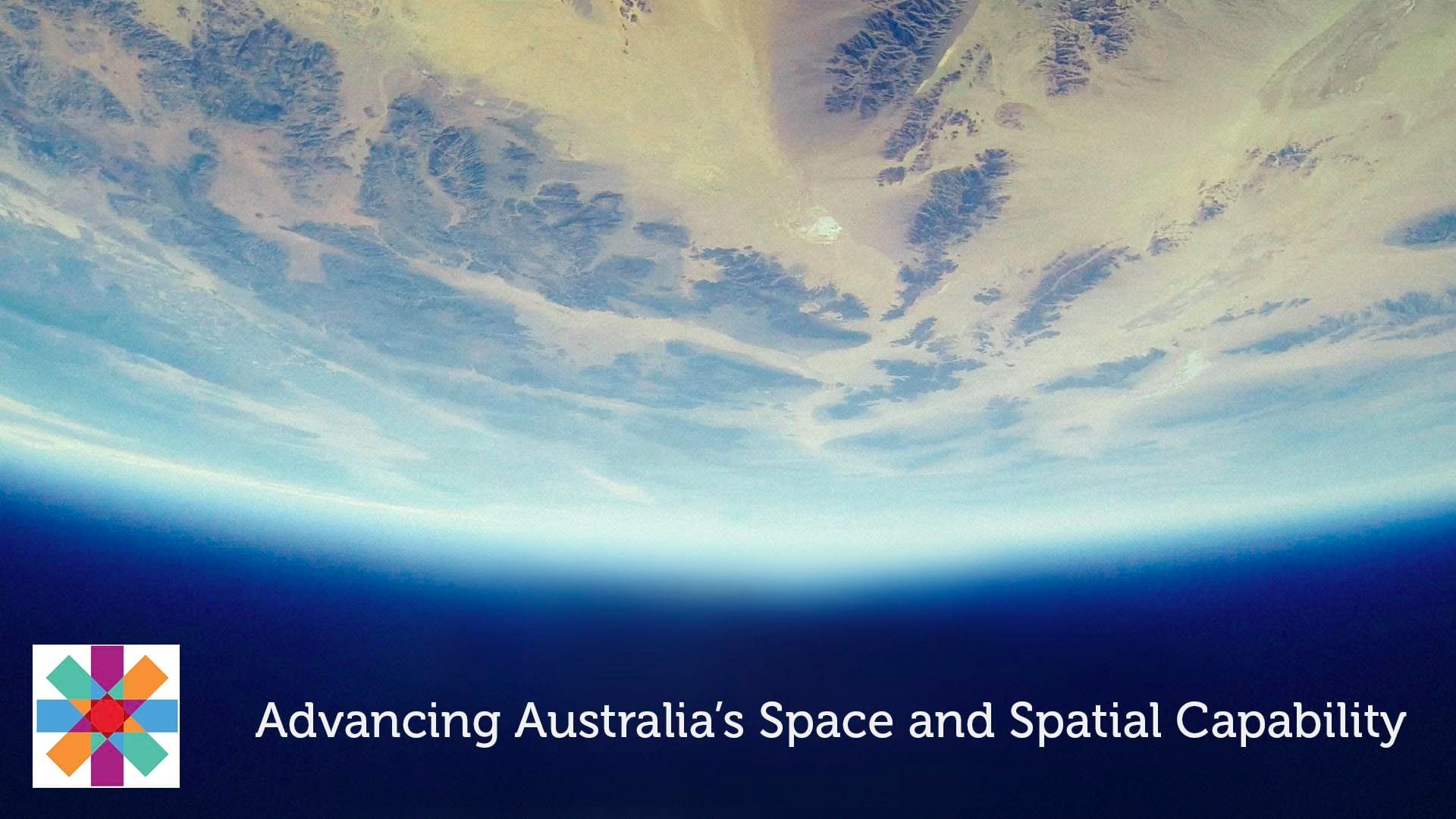
The SASCCAR project is working to establish a “Space and Spatial Capability Cluster” at RMIT. The cluster aims to provide a sustainable and interdisciplinary community of practice in “space” and “spatial”, bringing together spatial experts across RMIT University, and supporting early-career researchers and HDR students working in the spatial sciences. The cluster aims to enhance collaboration, increase the visibility of RMIT’s world-class expertise in spatial knowledge, and ultimately support relevant applications to large interdisciplinary funding schemes, including CRCs and Centres of Excellence.
Phase 2 of the SASCCAR project saw skills development workshops on mapping with Tableau; Frontier SI workshop; Workshop with Mark McMillan on Indigenous Knowledge of Place; Joint workshop with the Sir Lawrence Wackett Centre and defence industry (Textron) on major Next Gen Technology Fund application; as well as a presentation at the 2019 Engaging For Impact Event on Advancing Space and Spatial Capabilities with Dr Amanda Caples.
Space is a USD$345 billion global industry which has doubled over the previous decade, with strong growth expected to continue in the medium term. Australia’s Space and Spatial industries are undergoing a rapid change and growth including everything from rockets, satellites and sensors, through to the specialists who derive insights from space based information such as location data and satellite imagery. These diverse technologies are having more impact than ever across Australia’s economy, particularly our Agricultural, mining, environmental, health, transport, defence, and built environment industries.
You can find out more about the SASCCAR project here.
If you would like to get involved with this project, fill out the form below or reach out to project leaders via the contact info provided alongside each bio.
People
Matt Duckham
Professor
School: Geospatial Science
Matt Duckham is a Professor of Geospatial Sciences at RMIT University. At RMIT, he has occupied a number of senior leadership roles including: Acting Dean STEMM Diversity and Inclusion, Associate Dean of Geospatial Science, and Deputy Head of the School of Mathematical and Geospatial Sciences, Science Director for the CRC for Spatial Information (CRCSI) Rapid Spatial Analytics Program. Prior to joining RMIT, Matt was Professor in Geographic Information Science within the department of Infrastructure Engineering at the University of Melbourne, when he also held a visiting Professor position and the University of Greenwich.
Matts research focuses on the area of Geographic Information Science, particularly distributed and robust computation and visualisation with uncertain spatial and spatiotemporal information, within the domain of mobile, location aware and sensor enabled systems. He has taught a range of undergraduate and postgraduate courses in connection with spatial computing, in particular, spatial visualisation and spatial databases.
DCP HDR Working Group on Wellbeing and Belonging
Understanding HDR Wellbeing in and post COVID-19

Over the past few years, studies internationally have identified the power of the arts to improve wellbeing and health. At RMIT, we specialise at arts-based, codesign and ethnographic approaches to address social, ecological and health challenges. The DCP HDR Working Group on Wellbeing and Belonging are developing short term and long term projects around understanding HDR wellbeing and developing human-centred approaches to digital innovation. It seeks to address issues around the 2020 crisis (bushfires, climate change and COVID-19) and how we can empower HDRs for sustaining futures.
Within the working group, there is expertise in terms of ethnographic, user-experience methods, co-design frameworks, digital media curriculum and evaluation. This working group is researching the role of social and digital innovation for addressing impact of social isolation and associated emotional distress on wellbeing of HDR students during the COVID-19 crisis. The findings of this study will be deployed for future strategies for HDR students wellbeing.
If you would like to get involved with this project, fill out the form below or reach out to project leaders via the contact info provided alongside each bio.
People
Anne Harris
Associate Professor and Principal Research Fellow, Design and Social Context
School: Education
+61 3 9925 4459
RMIT staff profile
anne.harris@rmit.edu.au
Dr Anne M. Harris, PhD is an Associate Professor and Vice Chancellor’s Principal Research Fellow at RMIT University, and an Australian Research Council Future Fellow (2017 – 2021) studying intercultural creativity. Anne is an Honorary Research Fellow at University of Nottingham (UK) and an Adjunct Professor at Monash University (Australia).
Their research is in the areas of gender, creativity, diversity, performance and emerging digital ethnographies. Anne is a native New Yorker and has worked professionally as a playwright, teaching artist and journalist in the USA and Australia. They have authored or co-authored over 60 articles and 13 books on creativity, arts, and non-dominant culture formations, the latest being Queering Families/Schooling Publics: Keywords (with Stacy Holman Jones, Sandra Faulkner, and Eloise Brook, Routledge 2017). Anne is the creator and series editor of the Palgrave book series Creativity, Education and the Arts, and recently completed an Australian Research Council DECRA on the commodification of creativity.
Catherine Gomes
Associate Professor
School: Media and Communication
Catherine Gomes is an Associate Professor in RMIT University’s School of Media and Communication. Catherine is an ethnographer whose work contributes to the understanding of the evolving migration, mobility and digital media nexus. As a migration and mobility scholar, Catherine specialises on the social, cultural and communication spaces of transient migrants, especially international students, their wellbeing, their social groups and their digital engagements. Catherine’s work covers the themes of identity, ethnicity, race, memory and gender. She is a specialist on the Asia-Pacific with Australia and Singapore being significant fieldwork sites. Catherine has experience in mixed methods and interdisciplinary research.
Catherine’s work on transient migration and digital technology is advancing work on migration and mobility because of the transient-digital nexus she pioneers. Moreover, as founding editor of Transitions: Journal of Transient Migration Migration (Intellect), editor of the Culture, Media and Communication in Migrant Societies book series (Amsterdam University Press) and lab leader of the Migration and Digital Media Research Lab housed in the Digital Ethnography Research Centre (DERC), Catherine facilitates intellectual discussions with the aim of generating practical outcomes to address and assist policymakers and stakeholders interested in transient migration and international mobility.
Larissa Hjorth
Distinguished Professor and Director, Design and Creative Practice
School: Enabling Capability Platforms
Larissa Hjorth is a digital ethnographer, artist, Distinguished Professor and director of the Design & Creative Practice ECP platform at RMIT University. With Professor Heather Horst, she co-founded the Digital Ethnography Research Centre (DERC). Previously, Hjorth was Deputy Dean, Research & Innovation, in the School of Media & Communication (2013−2016). Hjorth served on the inaugural Australian Research Council (ARC) Engagement & Impact Pilot study assessment panel for humanities and creative practice.
Hjorth studies the socio-cultural dimensions of mobile media and play practices in the Asia-Pacific region with an emphasis on interdisciplinary, collaborative and cross-cultural approaches. She has published a dozen co-authored books, edited over a dozen Handbooks/Companions and has over 40 journal articles.
More recently, Hjorth’s work has become concerned with how we can bring creative, social and design solutions to the growing ageing populations and, in turn, how we might consider scenarios of what it means to die well. She is also studying how our “more-than-human” companions can teach us about new media in everyday life. Hjorth’s last book, Haunting Hands (Oxford Uni Press) looked at how mobile media is being deployed in situations of grief and trauma, her previous book explored how art practice can teach us new acumen into the climate change debate.
Hjorth’s books include Haunting Hands (with Cumiskey 2017), Screen Ecologies (with Pink, Sharp & Williams 2016), Digital Ethnography (Pink et al. 2016) Mobile Media in the Asia-Pacific (2009), Games & Gaming (2010), Online@AsiaPacific (with Arnold 2013), Understanding Social Media (with Hinton 2013), and Gaming in Locative, Social and Mobile Media (with Richardson 2014).
Ingrid Richardson
Professor
School: Media and Communication
Professor Ingrid Richardson has been teaching, supervising and researching in the fields of digital media, mobile media and games for over twenty years. She has a broad interest in the human-technology relation and has published widely on the phenomenology of games and mobile media, digital ethnography and innovative research methods, the relation between technology use and wellbeing, and the cultural effects of urban screens, wearable technologies, virtual and augmented reality, remix culture and web-based content creation and distribution. Ingrid has led or co-led 14 funded research projects, the most recent being an ARC DP [Games of Being Mobile] with Larissa Hjorth. She is contributing co-editor of Studying Mobile Media (Routledge, 2011) and co-author of Gaming in Social, Locative and Mobile Media (Palgrave, 2014), Ambient Play (MIT, 2020), Understanding Games and Game Cultures (Sage, 2020), Exploring Minecraft: Ethnographies of Play and Creativity (Palgrave, forthcoming), and Mobile Media and the Urban Night (Palgrave, forthcoming). Ingrid brings ten years’ experience in university-level HDR management and during this time has actively championed and supported creative methods and practice-led postgraduate research. Over the past five years she has also developed a passion for teaching critical web literacy skills to undergraduate students across all disciplines.
Natalie Hendry
VC Research Fellow
School: Media and Communication
Natalie Hendry is a Vice Chancellor’s Postdoctoral Fellow in the School of Media and Communications. Her research explores everyday social media and digital technology practices in the context of critical approaches to education, mental health, media, wellbeing, youth studies and policy. This brings together her experience prior to academia, working in community education, secondary schools and hospital settings, and consulting for health organisations and industry. Using digital ethnography and creative workshop methods, her postdoctoral research explores emerging and potential online opportunities to enhance digital outreach and media-based support for young people whose parents or adult family members are experiencing mental ill-health.
Renata Kokanovic
Convener, The HEALTH Network; Professor
School: Global, Urban & Social Studies
Professor Renata Kokanovic’s works at the intersections of health, society and medicine, with a particular focus on interdisciplinary mental health research.She combines empirical research with interdisciplinary theoretical and methodological scholarship while collaborating with industry partners and health care users to facilitate greater understanding of lived experiences of health and illness.
She co-founded Healthtalk Australia, a digital repository of health and illness narrative accounts designed to support people experiencing ill health, and inform health and social care delivery and policy.
Ruth De Souza
VC Research Fellow
School: School of Art
Dr Ruth De Souza (FACN) is a Vice-Chancellor’s Fellow at RMIT, based in the School of Art and DCP Research Platform. She is a nurse, academic and a community-engaged researcher in gender, race, health and digital technologies. Ruth’s Fellowship will engage health professionals in finding new ways to understand, co-design and implement sustainable cultural safety initiatives in a range of health contexts in response to health inequities.
Prior to moving to Australia in 2013, Ruth worked at AUT University where she taught in the School of Nursing, led the Bachelor of Health Promotion, and was a Senior Research Fellow at the Centre for Asian and Migrant Health Research. Since her arrival in Australia, Ruth has undertaken a wide range of roles, including leading an undergraduate nursing program at Monash University’s Berwick campus; spearheading a unique community-engaged joint research appointment with North Richmond Community Health exploring how wearables and other digital technologies are perceived by people from culturally and linguistically different backgrounds and co-ordinating an interdisciplinary Data Systems and Society Research Network across the University of Melbourne. Ruth has also investigated the applicability of cultural safety in Australia, working closely with The Congress of Aboriginal and Torres Strait Islander Nurses and Midwives (CATSINaM), presenting at their National Professional Development Conferences and delivering training on cultural safety. She has also undertaken a two-year cultural safety project with cohealth (a not-for-profit community health organisation) and Our Watch who work for the primary prevention of violence against women and their children.
Creative Care
Exploring creative practice and teaching in health and wellbeing
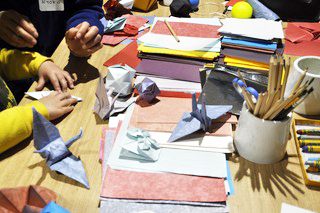
Creative Care researchers and students engage in creative research that intersects with health, wellbeing and the human lived experience. Creative Care projects are undertaken through diverse mediums; they are site specific social practices. The collaborative and interdisciplinary research is realised through exhibitions, performances, events, publications, or undertaken within health and social care settings, and with industry partners.
In August 2019, Creative Care presented Hand Festival at Peter MacCallum Cancer Centre in Melbourne. The team, along with Professor Rebecca Hilton (University Arts Stockholm), organised the social practice choreographed event designed with a focus on the hand for trust and intimate hand activities. Seventeen artists, colleagues, student nurses from RMIT, and Peter Mac staff and patients participated in hand drawing, origami, hand massages, wax modelling, mbira, knitting, cat’s cradle and more. Later that month, the team ran Hands + Mouth: Boundaries of the Body, an experimental and participatory “world cafe” event which explored the boundaries of the body at the end of life (touch, embodiment, gestures and more) through roving conversations about end of life scenarios with a focus on death and dying, ageing and illness and how they intersect with culture, the senses and place.
You can find out more about the Creative Care project on the CAST Website.
If you would like to get involved with this project, fill out the form below or reach out to project leaders via the contact info provided alongside each bio.
People
Keely Macarow
Associate Professor
School: School of Art
Keely Macarow is Coordinator of Postgraduate Research in the School of Art at RMIT. Keely’s research is focused on socially engaged art and the nexus between creative arts, social justice, health and wellbeing, and social and natural science. Currently, Keely is a member of The Untitled (a collective of artists, urban and graphic designers, architects and housing researchers based in Melbourne and Stockholm) who produce creative works, publications and interventions in Australia and Sweden to advocate for Homefullness (rather than homelessness). Her film, video and exhibition projects have been presented in Australia, the UK, the US, Germany, Belgium, Austria, Sweden, Hungary, France, Scotland and Denmark.
Games for Change
Designing Games for Social Change
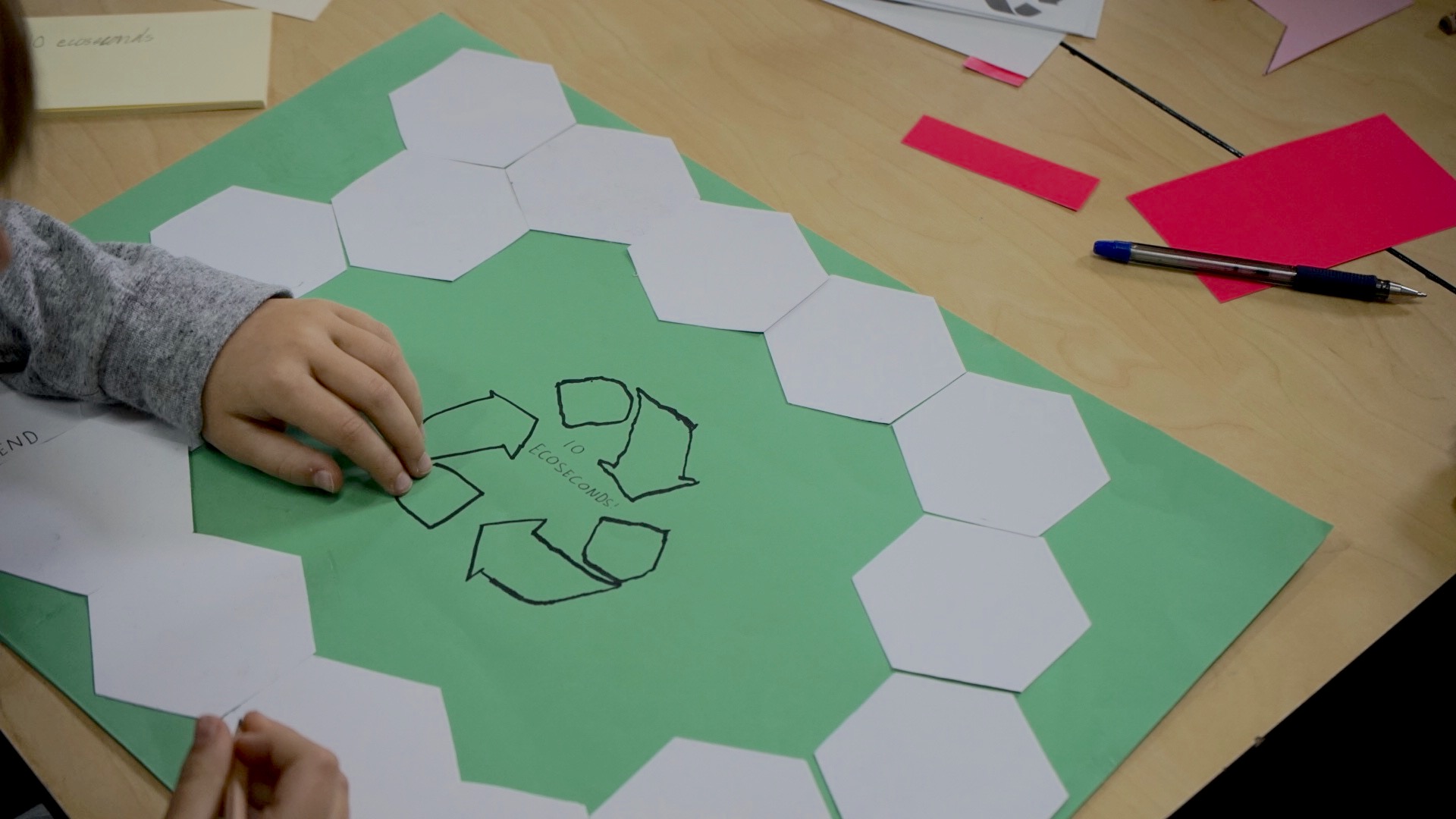
Games for Change takes a play-focused, iteration-based approach to game design. Our first Games for Social Change Workshop saw participants engage in experimental learning and social engagement surrounding a particular topic: ecosystem problems. Young students learnt about game designing and what makes a ‘good’ game. They considered specific environmental issues and then worked together to design and test a game that would help solve that problem.
Game design involves a creative and iterative process guided by prototyping, playing and testing and then refining. Through our Games for Change Workshops we’re making the game design process accessible and actionable for any topic and varying participants.
If you would like to get involved with this project, fill out the form below or reach out to project leaders via the contact info provided alongside each bio.
People
Larissa Hjorth
Distinguished Professor and Director, Design and Creative Practice
School: Enabling Capability Platforms
Larissa Hjorth is a digital ethnographer, artist, Distinguished Professor and director of the Design & Creative Practice ECP platform at RMIT University. With Professor Heather Horst, she co-founded the Digital Ethnography Research Centre (DERC). Previously, Hjorth was Deputy Dean, Research & Innovation, in the School of Media & Communication (2013−2016). Hjorth served on the inaugural Australian Research Council (ARC) Engagement & Impact Pilot study assessment panel for humanities and creative practice.
Hjorth studies the socio-cultural dimensions of mobile media and play practices in the Asia-Pacific region with an emphasis on interdisciplinary, collaborative and cross-cultural approaches. She has published a dozen co-authored books, edited over a dozen Handbooks/Companions and has over 40 journal articles.
More recently, Hjorth’s work has become concerned with how we can bring creative, social and design solutions to the growing ageing populations and, in turn, how we might consider scenarios of what it means to die well. She is also studying how our “more-than-human” companions can teach us about new media in everyday life. Hjorth’s last book, Haunting Hands (Oxford Uni Press) looked at how mobile media is being deployed in situations of grief and trauma, her previous book explored how art practice can teach us new acumen into the climate change debate.
Hjorth’s books include Haunting Hands (with Cumiskey 2017), Screen Ecologies (with Pink, Sharp & Williams 2016), Digital Ethnography (Pink et al. 2016) Mobile Media in the Asia-Pacific (2009), Games & Gaming (2010), Online@AsiaPacific (with Arnold 2013), Understanding Social Media (with Hinton 2013), and Gaming in Locative, Social and Mobile Media (with Richardson 2014).
Hugh Davies
Postdoctoral Research Fellow
School: Games
Hugh Davies is an artist, curator and researcher of games and play. His practice explores histories of media devices and cultures of games in the Asia Pacific Region. Awarded a PhD in Art, Design and Architecture from Monash University in 2014, Hugh’s studies in game cultures have been supported with fellowships from Tokyo Art and Space, M+ Museum of Visual Culture and the Hong Kong Design Trust. Hugh is currently a postdoctoral research fellow at RMIT in Melbourne, Australia.
Her Place Women's Museum Research Project
A discussion on feminism in the 21st century
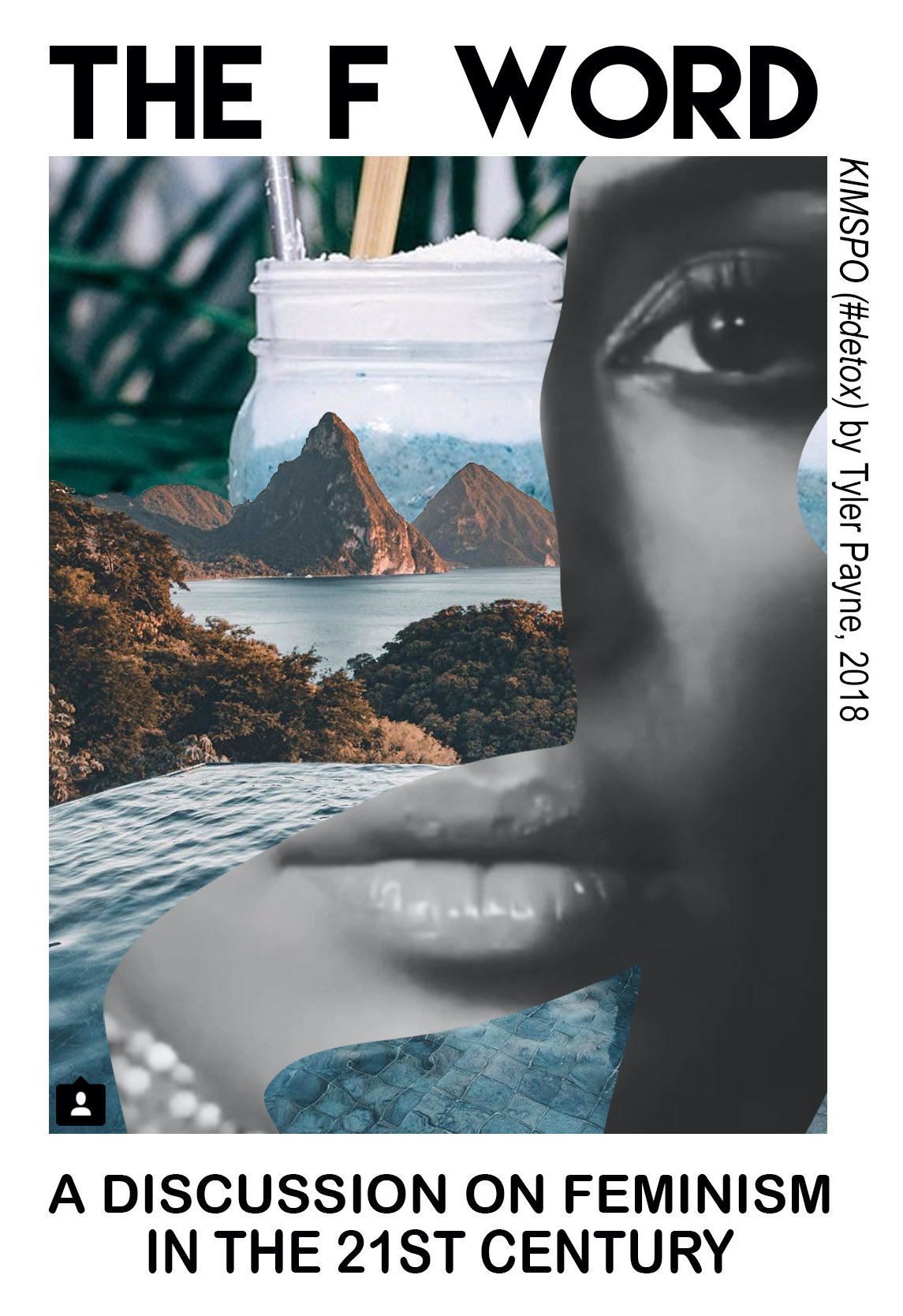
This project addressed a central problem: how can a women’s museum engage diverse communities and age groups in the twenty-first century, in the context of changing ideas of gender and feminism?
The basis for the Her Place Museum is the well-documented lack of representation of women in mainstream collecting institutions in Australia and in broader narratives of Australian history. To expand this understanding, RMIT researchers and students collaborated with Her Place and ran two workshops involving 40 key stakeholders. In these workshops, stakeholders developed engagement strategies for young people and people from CALD communities; a communication strategy for cross-generational dialogue; and recommendations for a digital platform.
If you would like to get involved with this project, fill out the form below or reach out to project leaders via the contact info provided alongside each bio.
People
Grace McQuilten
Senior Lecturer
School: School of Art
Grace is a published art historian, curator and artist with expertise in contemporary art and design, public art, social practice, social enterprise and community development.
Grace’s research challenges and transforms conventional understandings of the relationship between margin and centre in relation to the cultural economy, contemporary art practice and art history. She has pioneered work on the field of art-based social enterprise in Australia, and has worked extensively in migrant and refugee settlement. She has a multidisciplinary approach that engages with a range of fields including art, design, architecture, sustainability, sociology, business and international development. In addition, through her leadership of the CAST research group, she collaborates with industry and across disciplines to develop research projects that address issues of access, equity and justice.
Grace is a Chief Investigator on the ARC Discovery Project ‘The underworld: outsider artists and the reformulation of Australian art,’ (2018−2020) and the ARC Discovery Project ‘Art-based Social Enterprises and Marginalised Young Peoples Transitions,’ (2017−2019). She has published numerous articles in refereed and unrefereed publications, published creative works in literary journals, authored exhibition catalogues and worked as an editor on local newspapers and engaged widely with local and national media. Grace is the founding CEO & a current Board Director of The Social Studio, a fashion and art based social enterprise working with young people from humanitarian migrant backgrounds in Melbourne.
Social Games for Change
Japan Workshop
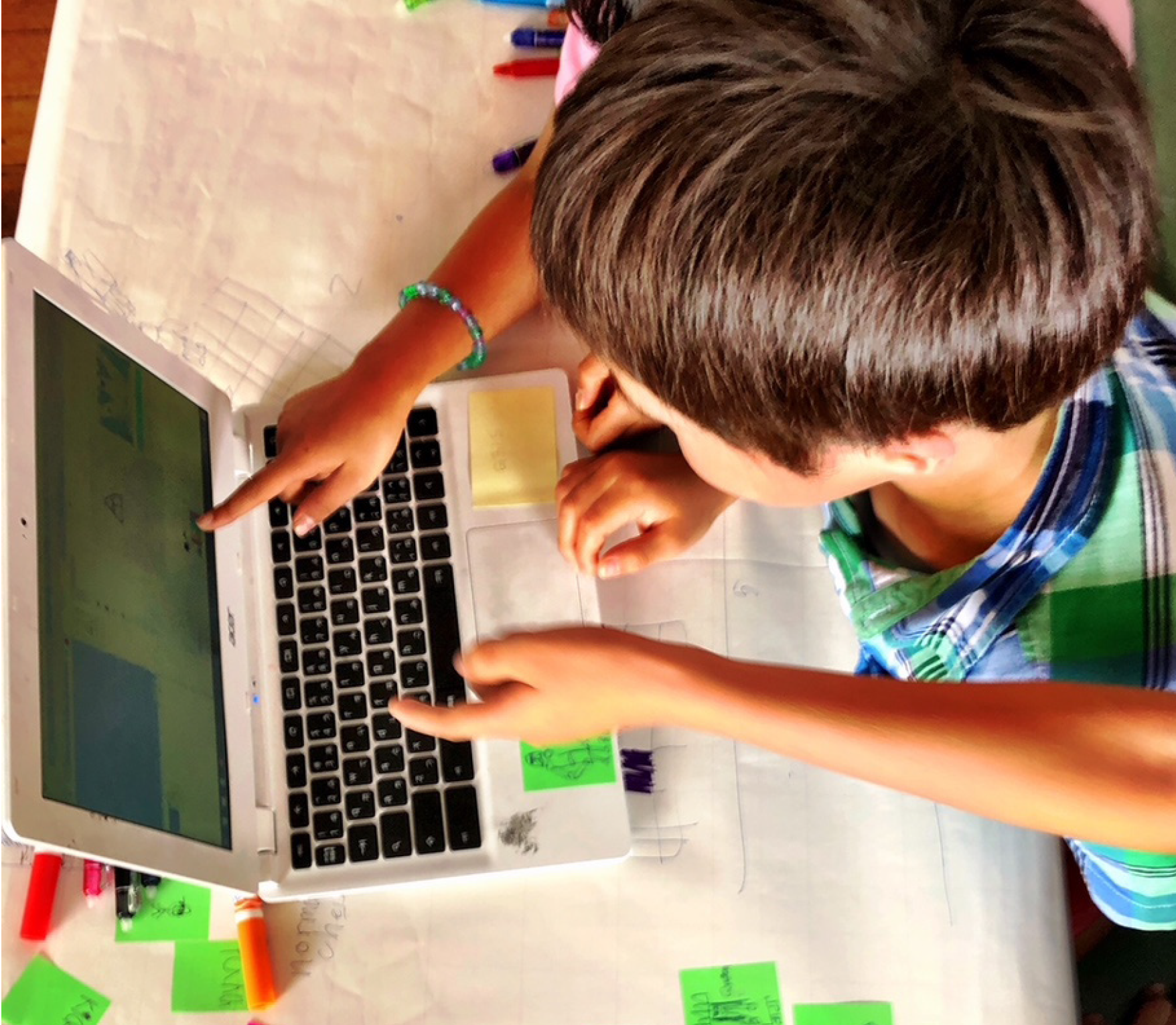
Game design involves a creative and iterative process guided by prototyping, playing and testing and then refining. Through our Social Games for Change Workshops we’re making the game design process accessible and actionable for any topic and varying participants.
The Social Games For Change Workshop introduces and encourages STEAM (Science, Technology, Engineering, Arts, Maths) skills and capabilities in the primary School classroom. This iteration of the workshop took place on Thursday the 7th June at Kyoto International Primary School, Japan. The workshop was conducted in English and delivered to a class of 18 students.
If you would like to get involved with this project, fill out the form below or reach out to project leaders via the contact info provided alongside each bio.
People
Larissa Hjorth
Distinguished Professor and Director, Design and Creative Practice
School: Enabling Capability Platforms
Larissa Hjorth is a digital ethnographer, artist, Distinguished Professor and director of the Design & Creative Practice ECP platform at RMIT University. With Professor Heather Horst, she co-founded the Digital Ethnography Research Centre (DERC). Previously, Hjorth was Deputy Dean, Research & Innovation, in the School of Media & Communication (2013−2016). Hjorth served on the inaugural Australian Research Council (ARC) Engagement & Impact Pilot study assessment panel for humanities and creative practice.
Hjorth studies the socio-cultural dimensions of mobile media and play practices in the Asia-Pacific region with an emphasis on interdisciplinary, collaborative and cross-cultural approaches. She has published a dozen co-authored books, edited over a dozen Handbooks/Companions and has over 40 journal articles.
More recently, Hjorth’s work has become concerned with how we can bring creative, social and design solutions to the growing ageing populations and, in turn, how we might consider scenarios of what it means to die well. She is also studying how our “more-than-human” companions can teach us about new media in everyday life. Hjorth’s last book, Haunting Hands (Oxford Uni Press) looked at how mobile media is being deployed in situations of grief and trauma, her previous book explored how art practice can teach us new acumen into the climate change debate.
Hjorth’s books include Haunting Hands (with Cumiskey 2017), Screen Ecologies (with Pink, Sharp & Williams 2016), Digital Ethnography (Pink et al. 2016) Mobile Media in the Asia-Pacific (2009), Games & Gaming (2010), Online@AsiaPacific (with Arnold 2013), Understanding Social Media (with Hinton 2013), and Gaming in Locative, Social and Mobile Media (with Richardson 2014).
Hugh Davies
Postdoctoral Research Fellow
School: Games
Hugh Davies is an artist, curator and researcher of games and play. His practice explores histories of media devices and cultures of games in the Asia Pacific Region. Awarded a PhD in Art, Design and Architecture from Monash University in 2014, Hugh’s studies in game cultures have been supported with fellowships from Tokyo Art and Space, M+ Museum of Visual Culture and the Hong Kong Design Trust. Hugh is currently a postdoctoral research fellow at RMIT in Melbourne, Australia.
Jacina Leong
PhD candidate
School: Media and Communication
Jacina Leong is an artist-curator and PhD candidate in the School of Media and Communications, RMIT. Her research explores critical-creative and careful curatorial approaches to social innovation practices by museums and galleries.
Over the past decade, she has worked in hybrid new media spaces, universities, national and international festivals, regional museums and galleries, libraries and schools — to vision and deliver a diverse range of trans-disciplinary engagement programs, via highly collaborative, experimental and site-responsive processes. Most recently, Jacina was curator for Robotronica, project lead and founding member of the Guerrilla Knowledge Unit, guest facilitator of the Future Innovators Summit (Ars Electronica Tokyo Initiative), and co-curator of the provocation, Curating In The Age of Automation (RMIT & Ritsumeikan University, Kyoto).
From 2012 to 2017, Jacina worked at The Cube (QUT), establishing the inaugural STEAM engagement program for school and university students, educators and pre-service teachers. This program involved key collaborations with local, national and international organisations including Ars Electronica, LEGO Education, and Brisbane City Council. She has also worked in public program development at the Ipswich Art Gallery, collaborative learning strategy in universities, gallery management at Jan Murphy Gallery, and was advisor to the inaugural Make Nice at VIVID Festival.
News and updates
HDR Opportunity: Dr Anne Galloway Workshop
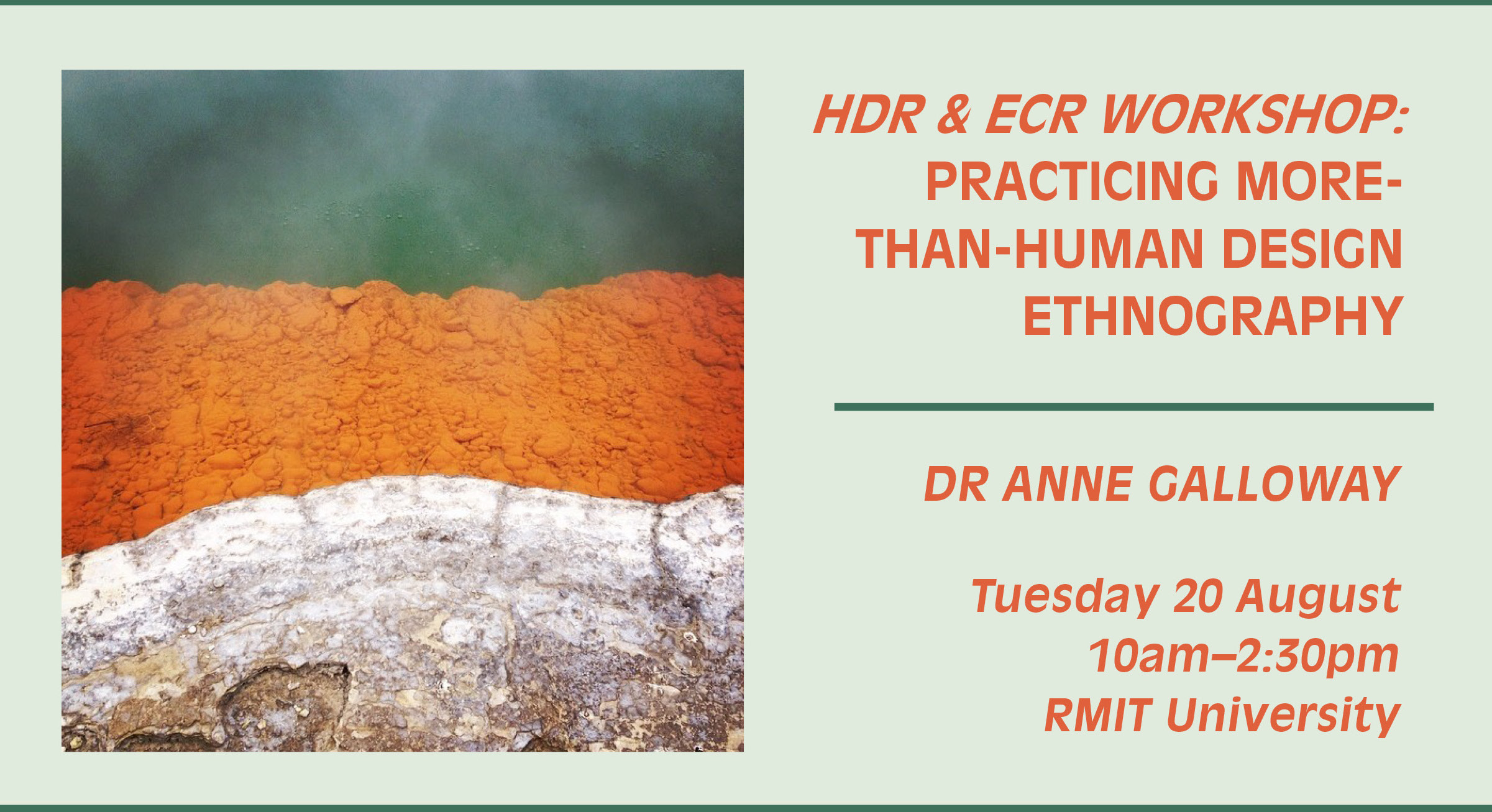
Practicing More-than-human Design Ethnography Workshop
Dr Anne Galloway, School of Design, Victoria University of Wellington, NZ
Tuesday 20 August 2019, RMIT City Campus Read more
DCP Lectures | Dr Anne Galloway
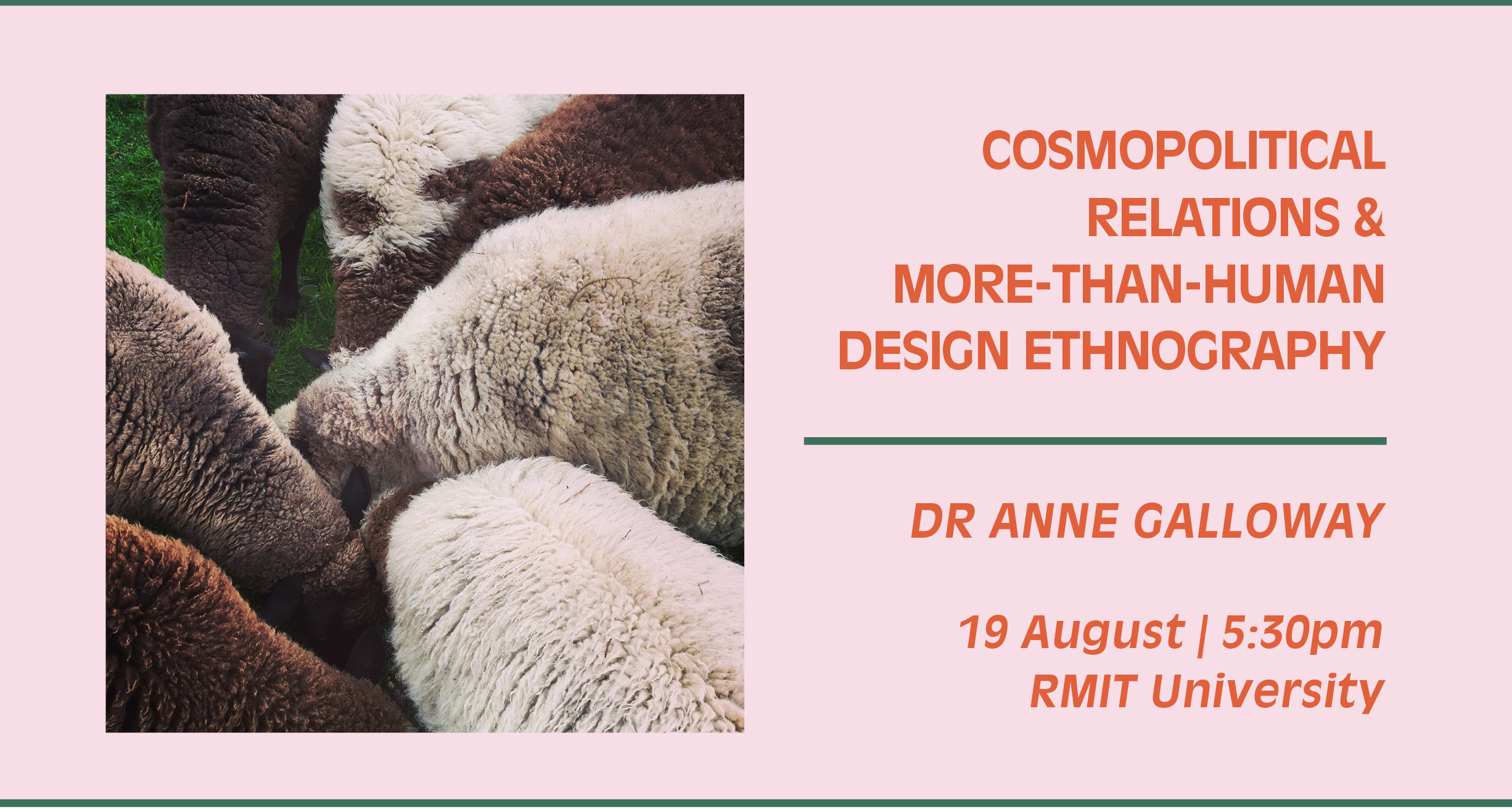
Cosmopolitical Relations & More-Than-Human Design Ethnography
Monday 19 August, 5:30 – 6:30pm
RMIT City Campus, Building 80.10.16 Read more
HDR HIGHLIGHT: Caitlin McGrane
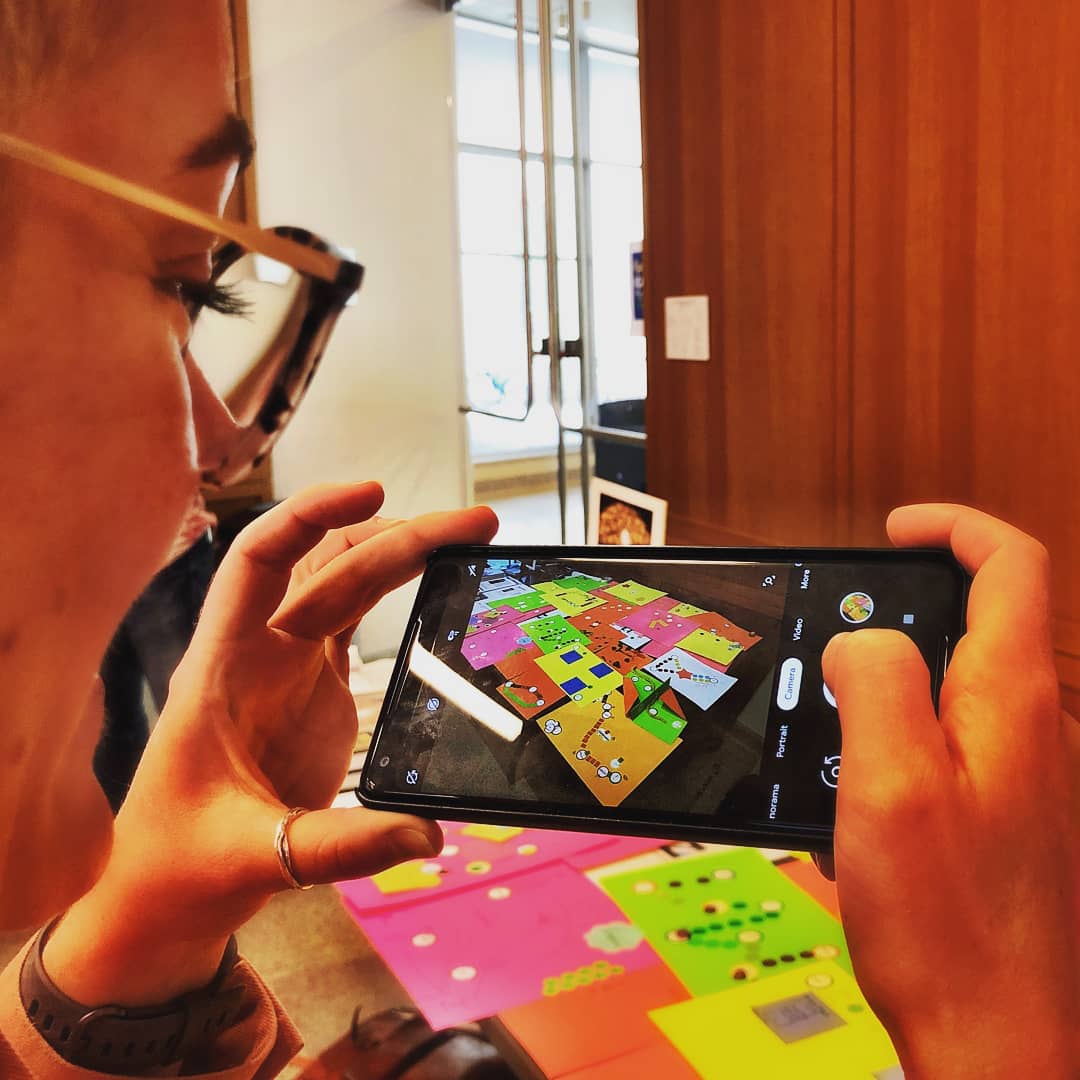
Caitlin McGrane
PhD candidate in the Digital Ethnography Research Centre Read more
WrICE Program Partners with Leading Asian Literary Centre
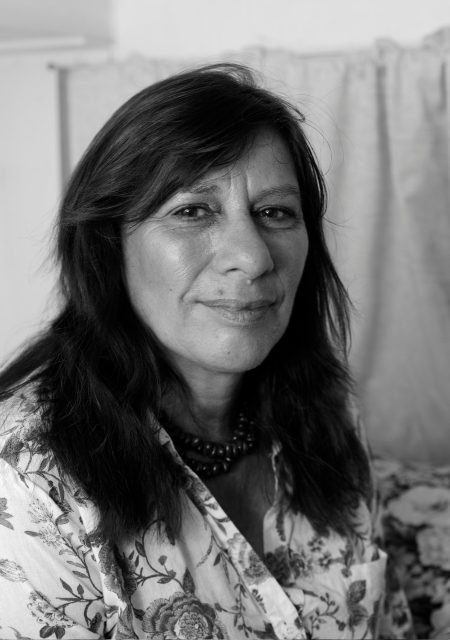
RMIT’s Writers Immersion and Cultural Exchange Program (WrICE), now in its fifth year, will partner with the Jakarta Post Writing Center in 2018. Read more
People

Professor Ingrid Richardson has been teaching, supervising and researching in the fields of digital media, mobile media and games for over twenty years. She has a broad interest in the human-technology relation and has published widely on the phenomenology of games and mobile media, digital ethnography and innovative research methods, the relation between technology use and wellbeing, and the cultural effects of urban screens, wearable technologies, virtual and augmented reality, remix culture and web-based content creation and distribution. Ingrid has led or co-led 14 funded research projects, the most recent being an ARC DP [Games of Being Mobile] with Larissa Hjorth. She is contributing co-editor of Studying Mobile Media (Routledge, 2011) and co-author of Gaming in Social, Locative and Mobile Media (Palgrave, 2014), Ambient Play (MIT, 2020), Understanding Games and Game Cultures (Sage, 2020), Exploring Minecraft: Ethnographies of Play and Creativity (Palgrave, forthcoming), and Mobile Media and the Urban Night (Palgrave, forthcoming). Ingrid brings ten years’ experience in university-level HDR management and during this time has actively championed and supported creative methods and practice-led postgraduate research. Over the past five years she has also developed a passion for teaching critical web literacy skills to undergraduate students across all disciplines.
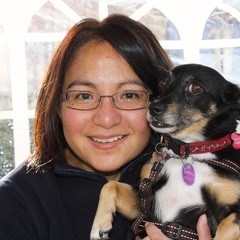
Catherine Gomes is an Associate Professor in RMIT University’s School of Media and Communication. Catherine is an ethnographer whose work contributes to the understanding of the evolving migration, mobility and digital media nexus. As a migration and mobility scholar, Catherine specialises on the social, cultural and communication spaces of transient migrants, especially international students, their wellbeing, their social groups and their digital engagements. Catherine’s work covers the themes of identity, ethnicity, race, memory and gender. She is a specialist on the Asia-Pacific with Australia and Singapore being significant fieldwork sites. Catherine has experience in mixed methods and interdisciplinary research.
Catherine’s work on transient migration and digital technology is advancing work on migration and mobility because of the transient-digital nexus she pioneers. Moreover, as founding editor of Transitions: Journal of Transient Migration Migration (Intellect), editor of the Culture, Media and Communication in Migrant Societies book series (Amsterdam University Press) and lab leader of the Migration and Digital Media Research Lab housed in the Digital Ethnography Research Centre (DERC), Catherine facilitates intellectual discussions with the aim of generating practical outcomes to address and assist policymakers and stakeholders interested in transient migration and international mobility.
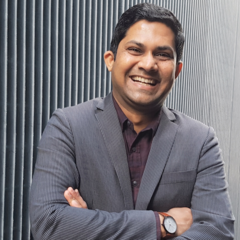
Dr Rohit Ashok Khot is the Deputy Director of the Exertion Games Lab; and Vice-Chancellor’s Postdoctoral Fellow at RMIT University, Australia. Rohit’s research embodies interdisciplinary strength and explores the amalgamation of design and technology in a creative way.
Dr Khot’s track record includes 39 scholarly publications in last 7 years, the majority of which appear in highly competitive HCI conferences and journals and include one best paper and one honorable mention (top 5%) award. Dr Khot’s research also appeared on 30+ press articles including a cover story on Mashable Australia, IEEE Spectrum and TV coverage on Channel 9 News and ABC News 24. He has won prestigious awards including IBM PhD fellowship (2014−2015), 2017 RMIT HDR Prize for Research Excellence (2017), RMIT Vice-chancellor’s Postdoctoral Research Fellowship (2017−2019) and SIGCHI Development Fund Grant (2017,2018). Dr Khot is also involved in organization and management of the Special Interest Group meetings, workshops and symposiums at leading international conferences specifically around food and play, besides serving on program committees for leading international HCI conferences, including DIS and TEI.
Rohit is passionate about playful Human-Food Interaction (HFI) and has an ambitious goal to alter the common perception that food cannot be healthy and pleasurable at the same time.
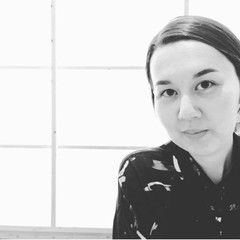
Jacina Leong is an artist-curator and PhD candidate in the School of Media and Communications, RMIT. Her research explores critical-creative and careful curatorial approaches to social innovation practices by museums and galleries.
Over the past decade, she has worked in hybrid new media spaces, universities, national and international festivals, regional museums and galleries, libraries and schools — to vision and deliver a diverse range of trans-disciplinary engagement programs, via highly collaborative, experimental and site-responsive processes. Most recently, Jacina was curator for Robotronica, project lead and founding member of the Guerrilla Knowledge Unit, guest facilitator of the Future Innovators Summit (Ars Electronica Tokyo Initiative), and co-curator of the provocation, Curating In The Age of Automation (RMIT & Ritsumeikan University, Kyoto).
From 2012 to 2017, Jacina worked at The Cube (QUT), establishing the inaugural STEAM engagement program for school and university students, educators and pre-service teachers. This program involved key collaborations with local, national and international organisations including Ars Electronica, LEGO Education, and Brisbane City Council. She has also worked in public program development at the Ipswich Art Gallery, collaborative learning strategy in universities, gallery management at Jan Murphy Gallery, and was advisor to the inaugural Make Nice at VIVID Festival.
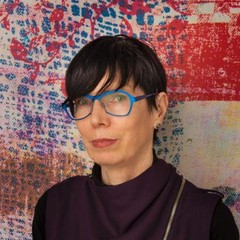
Acclaimed curator and fashion researcher Professor Robyn Healy is Head of RMIT’s School of Fashion and Textiles. Appointed in 2014, she will lead the School through a critical period of change and expansion. Prior to this appointment, Healy held the role of acting Head of School and Deputy Head of Research. She was also previously Program Director of the Bachelor of Design (Fashion) (2009−2012) and HDR Director (2011−2012) in the School of Architecture and Design. Healy has steered the development of the fashion research cohort, and reviewed and restructured the fashion program to facilitate vertically integrated studios, cross-disciplinary studios, and increased industry engagement, particularly with the professional practice stream.
